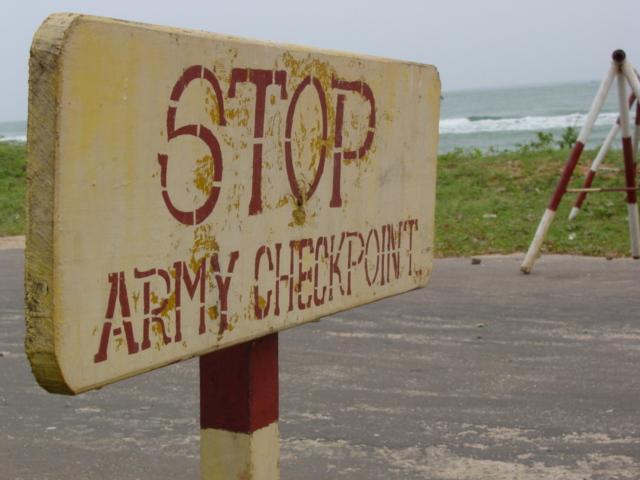Sri Lanka state of emergency: Should UK tourists stay away?
What tourists need to know about the current situation

March is an excellent month to visit Sri Lanka, since the weather is mostly sunny and dry. The tropical island welcomes around 200,000 British tourists each year; the UK is behind only China and India in the number of visitors it sends to Sri Lanka. But in 2018 the month has begun with inter-communal violence in a key tourist area. These are the key questions and answers for prospective travellers.
Hasn’t Sri Lanka endured strife for decades?
Between 1983 and 2009, a long and bloody civil war was fought between the government and the “Tamil Tigers”, seeking to create an independent state in the north and east of the country. For many years these areas were out of reach of tourists.
The current conflict is unrelated, and is taking place further south, in the central highlands around the town of Kandy and the east coast town of Ampara. It involves the Buddhist Sinhalese majority and the Islamic minority.
There have been claims that a Buddhist youth was killed in an altercation with a group of young Muslims, and that attacks on Muslim-owned businesses and homes have been orchestrated using social media.
How have the authorities responded?
Sri Lanka Tourism says: “An island-wide state of emergency has been declared purely as a precaution and as a way of facilitating action of the law enforcement mechanism.”
Temporary curfews have been intermittently imposed in some towns and districts, though foreign tourists who can demonstrate their status with their passports have been allowed to move around freely.
Most of the island’s places of interest are in the south-west quadrant. The capital, Colombo, the beaches of the south-west and the city of Galle are all on the tourism circuit, as are the hill towns of Nuwara Eliya and Kandy — focus for the current violence.
But in a bulletin on Friday afternoon, Sri Lanka Tourism said: "The Kandy district has returned to normalcy and no violent incident has been reported from the area in the last 48 hours. Tourists can now visit Kandy without any inconvenience.
"Intermittent curfews imposed by the Police purely as a precautionary measure have no impact on tourists.”
What does the Foreign Office say?
The latest bulletin, on 8 March, reads: “Trains to and from Kandy are understood to be operating normally, but there may be some disruption to local travel. Certain social media sites and messaging platforms have been blocked or restricted nationwide.
“There are no reports that major tourist areas elsewhere in Sri Lanka have been affected, and Bandaranaike International Airport in Colombo is operating as normal.
“You should exercise caution, avoid protests and rallies, comply with local security requirements and follow the advice of the local authorities.”
Besides the current conflict, the Foreign Office says tourists should be aware of “sexual assault, spiked drinks, road accidents, drowning due to dangerous tides and credit card fraud”.
The biggest danger is on the roads. The death toll is six times higher than in Britain, according to analysis of the latest UN statistics.
Can tourists come back early — or, if they haven’t yet travelled, postpone their trips — because of the violence?
Not without penalty. The Foreign Office is not warning against travel to Sri Lanka, and therefore holiday firms can continue to send customers there and have no obligation to help them to return home early.
Were the violence to escalate, the Foreign Office might warn against travel to specific areas. In that event, if you are on a package holiday and your trip involves one or more of these places, the travel company should discuss possibilities with you, such as agreeing an alternative itinerary or curtailing the trip.
But if you are travelling independently, there is no obligation for an airline to offer the chance to cancel penalty-free.
Subscribe to Independent Premium to bookmark this article
Want to bookmark your favourite articles and stories to read or reference later? Start your Independent Premium subscription today.

Join our commenting forum
Join thought-provoking conversations, follow other Independent readers and see their replies